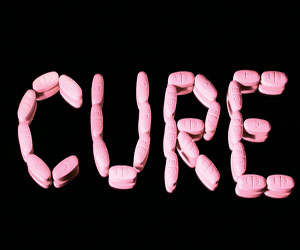 As diabetes sufferers, we can’t be blamed for taking any news regarding a so-called ‘cure’ with a liberal pinch of salt. It sometimes seems that we’re hearing stories of potential cures on an almost monthly basis – and yet nothing concrete ever materializes. But what would you think if the cure wasn’t a pill or injection of some kind, but rather a radical change in lifestyle? Diabetics already have plenty of tasty recipes to choose from, but recent research at Newcastle University in England seems to suggest that some types of diabetes could be cured in certain individuals by maintaining a strict diet of 800 calories per day. Is this another case of snake oil, or is there some truth here? Let’s find out.
As diabetes sufferers, we can’t be blamed for taking any news regarding a so-called ‘cure’ with a liberal pinch of salt. It sometimes seems that we’re hearing stories of potential cures on an almost monthly basis – and yet nothing concrete ever materializes. But what would you think if the cure wasn’t a pill or injection of some kind, but rather a radical change in lifestyle? Diabetics already have plenty of tasty recipes to choose from, but recent research at Newcastle University in England seems to suggest that some types of diabetes could be cured in certain individuals by maintaining a strict diet of 800 calories per day. Is this another case of snake oil, or is there some truth here? Let’s find out.
A ‘crash diet’ for Type 2 diabetes
The team of researchers in Newcastle took eleven overweight individuals, all of whom were suffering from Type 2 diabetes, and placed them on what they refer to as a ‘crash diet’. This diet involved the daily intake of just 800 calories – quite a challenge for anyone used to eating the recommended amount of around 2000 calories. But the results really do speak for themselves; after just a few weeks abiding by this 800-calorie diet, all eleven of the participants were free of the disease entirely. It’s important to note that this is only a sample size of eleven, and so the results are perhaps not indicative of everyone, but the team hopes to launch a large-scale trial of 280 people to see if they can replicate their success. In any case, these results are hugely encouraging for anyone suffering Type 2 diabetes – and it genuinely seems that a drastic cut in caloric intake could be the key to eliminating diabetes altogether, at least for those with the Type 2 variant.
A growing concern
In the United States alone, diabetes affects over 25 million people – that’s more than 8 per cent of the entire population. With studies such as this one being carried out to find cures for this debilitating condition, it’s easy to see why it’s so important that scientists and researchers continue important work like this. And even better, if the solution is as simple as cutting food intake to 800 calories per day, it’s a cure that’s attainable by anyone – unlike some of the pharmaceutical treatments that are available for other health problems. There are many complaints that medicinal cures take advantage of those with less financial means – but the 800 calorie cure may actually save money on the grocery bill! Naturally there are nutritional considerations, so those 800 calories will likely come from many different sources (grains, fruits, proteins, etc.) but the volume of intake is so much less that the savings surely won’t be restricted to the waist line.
Preventing the rise of diabetes
Whilst the 800-calorie cure is fantastic news for anyone suffering from diabetes Type 2, there are still more ways that we can prevent diabetes getting any more widespread than it is. Education is key to this effort, especially among children and teens. Teaching kids why they should be focusing on healthy foods (which can still taste good) is vital. It’s never too early to introduce children to healthy eating, and a good grounding in food education will help prevent them making bad decisions as they get older and are responsible for choosing their own meals. When fatty and sugary foods are available in any school cafeteria, it makes it very difficult for children to avoid these problematic foods. The healthy eating experts at Kwikmed suggest that “guidelines are six to eighteen teaspoonfuls of sugar per person per day, depending on the individual characteristics of the person and their overall diet”, and this is a great starting point for any parent who wants their child to avoid the perils of diabetes.
The final word
It’s clear that progress is being made in the treatment of diabetes. Naturally, we do not recommend you attempting the 800-calorie diet without first consulting a medical professional. It’s not clear what constituted the diet in terms of nutrition, and so it’s not advisable to try to replicate the diet. This form of cure is still in the testing stages, and as such should be seen as an interesting step forward rather than a bona fide life-saver. Diabetes is not an issue that will be fixed overnight, but with the dedicated people like the research team at Newcastle University working tirelessly for a cure – there is always hope. Who knows? The cure for all forms of diabetes could be just around the corner.
